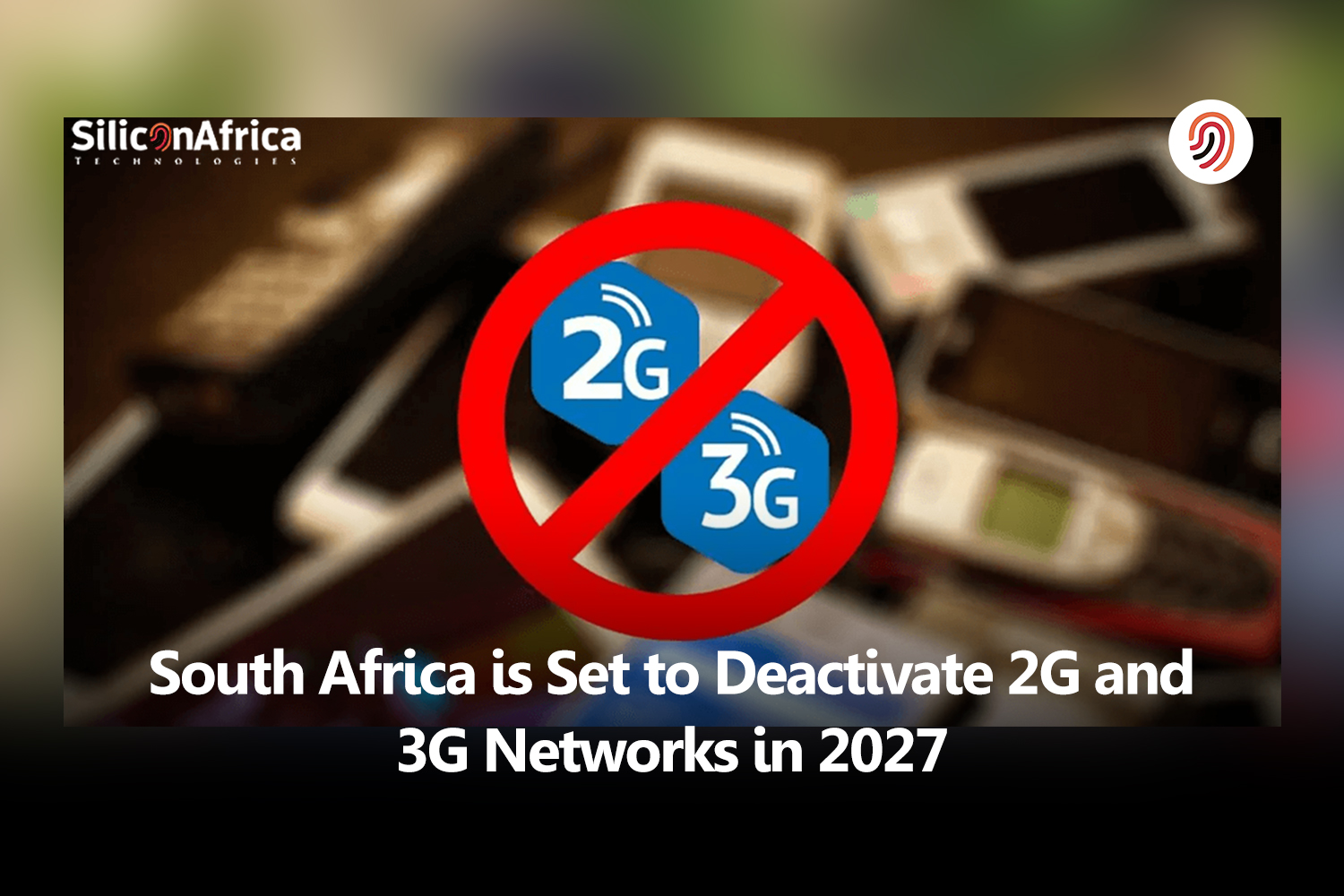Physical Address
60 Ekwema Cres, Layout 460281, Imo
Physical Address
60 Ekwema Cres, Layout 460281, Imo

South Africa’s mobile landscape is preparing for a significant shift as the country gears up to deactivate its aging 2G and 3G networks by the end of 2027.
This move, announced by the Department of Communications and Digital Technologies (DCDT), aims to free up valuable spectrum resources and pave the way for the expansion of faster, more advanced 4G and 5G technologies.
While the shutdown presents both opportunities and challenges, it’s undeniable that South Africa is taking a bold step towards a more digitally connected future.
The planned deactivation, initially intended for 2025, has been extended to 2027 to provide mobile network operators (MNOs) such as MTN South Africa, Telkom, and subscribers with additional time for a smooth transition.
This phased approach will begin on June 1st, 2025, with both 2G and 3G networks slated for complete shutdown by December 31st, 2027.
Major players like MTN South Africa, Telkom, etc. are actively preparing their customers for the inevitable switch, offering upgrade incentives and educational campaigns to ensure a seamless migration.
Several factors are driving South Africa’s decision to sunset its older networks.
Firstly, 2G and 3G technologies are simply outdated, offering slower speeds and limited capacity compared to their modern counterparts.
Secondly, with the growing demand for data-intensive applications like video streaming and mobile gaming, spectrum resources allocated to these legacy networks are becoming increasingly valuable.
By freeing up this spectrum, the DCDT aims to facilitate the expansion of 4G and 5G, which offer significantly faster speeds and wider coverage.
Read More: Mafab Set to Launch 5G Later this Year
MTN South Africa, Telkom, and other leading MNOs like Vodacom and Cell C will undoubtedly play a central role in the network transition.
These operators are already investing heavily in upgrading their infrastructure and expanding their 4G and 5G footprints.
MTN, for instance, has announced plans to invest billions of Rand in network modernization, ensuring its customers have access to the latest technologies.
The shutdown also presents an opportunity for MNOs to streamline their operations, potentially leading to cost reductions and improved efficiency.
While the benefits of the network shutdown are undeniable, challenges remain.
A significant number of South Africans, particularly in rural areas, still rely on 2G and 3G networks for basic voice and data services.
Ensuring these users have access to affordable 4G or 5G alternatives will be crucial to bridging the digital divide.
Additionally, the shutdown could impact businesses and industries that rely on older technologies for machine-to-machine communication.
MNOs and the government will need to work together to mitigate these challenges and ensure a smooth transition for all stakeholders.
South Africa’s planned deactivation of 2G and 3G networks represents a significant step towards a more modern and connected digital future.
While challenges remain, the potential benefits for individuals, businesses, and the economy are undeniable.
By embracing this change and ensuring an inclusive transition, South Africa can position itself as a leader in the digital age.
As MTN South Africa, Telkom, and other MNOs continue their preparations, it’s clear that the country is on the cusp of a major transformation, paving the way for a future powered by faster, more advanced mobile technologies.